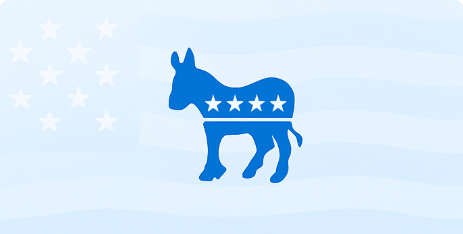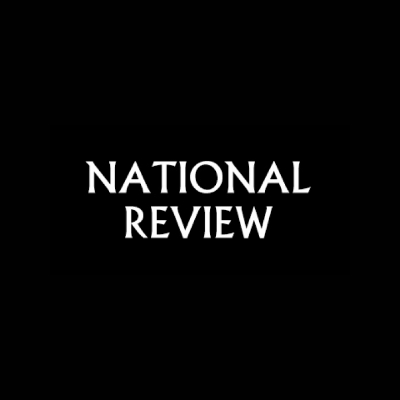How News Sources Portray Border Asylum of Undocumented Immigrants Policies
This chart shows how major news sources across the ideological spectrum frame border asylum of undocumented immigrants policies, from left to right-leaning perspectives.
Biased sources make the news landscape confusing and demanding of a great deal of energy and attention to navigate prudently. Variations in the views of political parties create the foundation for such biases, making a solid understanding of various policy stances key to successful news literacy. Policy on undocumented immigrants is one such area that elicits different opinions from political parties, leading to biased reporting with the aim of supporting certain viewpoints.
Border Asylum of undocumented immigrants typically refers to providing asylum for people who have crossed the U.S. border illegally. Undocumented immigrants can also be described as any foreign-born people staying in the country without the legal right to do so. Sometimes, this term refers to individuals who entered the country without permission, but it can also mean someone who overstayed their visa or violated the terms of their admission. A foreign student who fails to fulfill their school requirements is an example of someone who has violated the admission requirements for the country.
The terms “undocumented immigrant” or “unauthorized immigrant” are preferred over “illegal immigrant,” as “illegal immigrant” has taken on dehumanizing connotations. Additionally, an undocumented immigrant is distinct from a “non-citizen,” who does not have citizenship but may still have valid legal authorization to stay in the country.
Support for border asylum for undocumented immigrants generally focuses on humanitarian reasons, with arguments that emphasize upholding international asylum laws as outlined in international law, such as the Refugee Convention established following World War II, which incorporated the right to seek asylum into international law. Generally, liberal and Democratic voices take on this stance.
Those against policies for undocumented immigrant asylum bear concerns regarding strain or exploitation of the system, national security, negative economic impact, and other dangers. Generally, conservative and Republican voices take on this stance.
Balancing the stances is an issue of balancing humanitarian motivations with sustainable border policies that support national security. While the concerns regarding policy on immigration in the U.S. are already significant when it comes to refugee asylum, the unauthorized status of undocumented immigrants requires a much higher value for humanitarian work over legal process and national security.
The Democratic Stance on Asylum of Undocumented Immigrants
The Democratic Party’s policy stance on border asylum of undocumented immigrants is more favorable than the Republican Party’s stance.
Their arguments are focused on the humanitarian approach, emphasizing the importance of processing asylum claims to facilitate legal pathways into the country and citizenship. While some hold these values because they prioritize providing protections and assistance to asylum seekers, others with more moderate views may prioritize controlled immigration.
Democrats tend to regard refugee migration more positively than Republicans. The difference between the parties’ perceptions of refugee migration is best reflected by polling. A 2018 Pew poll shows that 74% of Democrats believe the US has a responsibility to take in refugees, compared to only 26% of Republicans. A newer 2022 Pew poll showed support for taking in civilian refugees from 72% of Americans. The numbers of Democrats and Republicans who said it was ‘somewhat’ important were very similar at a little over 4-in-10, but 41% of Democrats classified taking in civilian refugees as ‘very important’ while only 13% of Republican respondents reported the same views, with totals of 85% of Democrats supporting and 58% of Republicans supporting taking in refugees overall.
Politicians Who Support Border Asylum of Undocumented Immigrants Rights

The Republican Stance on Asylum of Undocumented Immigrants
The Republican stance on border control leads them to approach migrant policies with a priority on strict border security measures and increased enforcement as they focus on national security and overall stability.
They are particularly concerned with issues of illegal entrance to the country, supporting increased deportations, and tend to support stricter controls on asylum access and increased difficulty in obtaining citizenship. As they desire to deter illegal immigration and the entrance of unsafe individuals, they also prefer to increase the difficulty of the process for legal asylum.
The Republican Party platform assumes the position that refugee intake is a potential national security threat and thus that increased screenings on refugee applicants are a necessity. The Democratic platform, meanwhile, speaks more generously about refugees, but still acknowledges a need for some form of screening.
Although the parties have some differences in their approaches to refugee asylum, they share a recognition that the existing immigration policies are inadequate to address the problems at the border. The challenge of the situation lies in balancing border security with the internationally recognized right to asylum.
To see individual politicians’ stances on different policies, please visit the ‘Politician’s Stance Tracker.’
Politicians Who Oppose Border Asylum of Undocumented Immigrants Rights

Policy on Asylum of Undocumented Immigrants in the U.S.
The public stance on immigration is characterized by opposing values. Some argue that asylum and the opportunity to flee persecution are core American values that should rightfully be upheld. Many of these people desire an end to arrests and deportations of undocumented immigrants, and some propose that Immigration and Customs Enforcement (ICE) be abolished. Liberals and Democrats are more likely to hold these views.
Those who have a negative view of immigration prefer a stricter asylum border procedure, as they don’t want the U.S. to be taken advantage of or endangered. They are of the mind that some people come to the U.S. for purposes outside of safety and, as a result, should not be eligible for the humanitarian aid of asylum. If they come illegally as undocumented immigrants, critics of the asylum system are especially reproachful, as they value security and individual integrity. They see undocumented immigration as unjust. Conservatives and Republicans are more likely to hold these views.
As of 2024, a Gallup Poll found that negative views have increased among Democrats, Republicans, and independents alike. The poll found that a majority of Americans want there to be less immigration for the first time since 2005, with 55% preferring less immigration. For comparison, only 41% said the same in 2023, indicating a 14-point leap over the course of a year. Republicans reported the highest desire for decreased immigration at 88%, while 50% of independents said the same, along with 28% of Democrats. While Democrats are less likely to prefer decreasing immigration than the other two groups, the largest portion of Democrats prefer maintaining current immigration levels rather than increasing them.
With the second Trump Administration, a number of immigration-related policies have been implemented or updated in 2025. These changes to U.S. border policy are aimed at decreasing immigration and deporting undocumented immigrants.
A registration policy has been implemented that requires individuals who entered the U.S. without permission or have been in contact with authorities to register. The consequences for failing to register include fines related to both criminal and immigration penalties, as well as potential detention or deportation upon contact with law enforcement. Additionally, those who are deported may be denied immigration benefits or visas in the future. Registering involves providing information such as home address and may result in immigration and criminal consequences, including arrest and deportation, as well as migration-related criminal offenses.
To avoid many potentially unpleasant and costly legal procedures, the U.S. government encourages self-deportation. Self-deportation refers to someone who is illegally present in the U.S. exiting the country of their own accord. In 2025, DHS offered benefits to undocumented immigrants who submit their ‘Intent to Deport’ on the CBP Home App. These benefits include financial travel assistance and a stipend to support self-deportation.
Other countries differ in their immigration policies. Canada is relatively open in their border policy toward asylum seekers, but it worked with the United States to amend their safe third country agreement to allow it to turn away migrants in the face of an influx of immigrants. Other nations also tend to develop increasingly closed-off border policies when migration rises to reduce the rush.
History of Asylum of Undocumented Immigrants Policy in the U.S.
U.S. border asylum policy has shifted between more and less lenient legislation over time, excluding specific groups based on factors such as nationality early on.
Changes in political climate and other factors resulted in reforms, including the Immigration Reform and Control Act (IRCA) in 1986, which made it illegal to knowingly hire undocumented immigrants while also opening a legal pathway to residency for long-term undocumented immigrants.
Much later, immigrants who came to the United States as children became eligible for President Obama’s Deferred Action for Childhood Arrivals (DACA) program in 2012. This program temporarily delayed deportation for these individuals.
Under the first Trump Administration, the Zero Tolerance Policy in 2018 required the prosecution of all adults apprehended for illegal entry. This mandate included even those actively seeking asylum. The Zero Tolerance border policy was rescinded in 2021 by the Biden Administration.
President Biden aimed to undo the policies set forth by the Republican President Trump, setting forth ideals aligning with the Democratic Party instead. He ended policies such as the one requiring metering, which limits immigrant admissions at the border, while restoring ones that provided legal protections to immigrants. However, an influx of immigrants during Biden’s presidency forced him to introduce restrictions in 2023 that permitted the government to turn immigrants away if they had not applied for asylum elsewhere beforehand. Restrictions expanded further in 2024, barring all asylum requests until the number of daily requests fell.
The second Trump Administration rapidly introduced a number of policies to restrict immigration in general and address undocumented immigration. President Trump specifically targeted issues with the U.S.-Mexico border by restarting a policy he had attempted to implement in his first term, the Remain in Mexico policy, which requires immigrants from Mexico to remain in Mexico while applying for asylum in the United States. He also aims for agreements with other nearby countries to establish safe third-country agreements. Safe third country agreements allow a country to deny asylum to individuals who could have applied for protection in another country they passed through instead.
What the Future Holds
If public preferences for decreased immigration remain steady or even rise, Republican policies to increase deportations may continue, and restrictions on undocumented immigrants within the States may grow. Public sentiment reflects perceptions of the existing immigration situation, so this factor will be influenced by whether illegal immigration remains the best option in the eyes of those urgently seeking asylum.
The efficacy of President Trump’s border policies in 2025 remains to be seen, and their longevity will largely depend on the results they yield. Future immigration policy in the U.S. will likely reflect the results of these policies.
To unlock more data-driven insights into media bias, explore political leanings with research-backed tools, and customize your news feed around what matters most to you, sign up for a Biasly Premium News Membership.











































